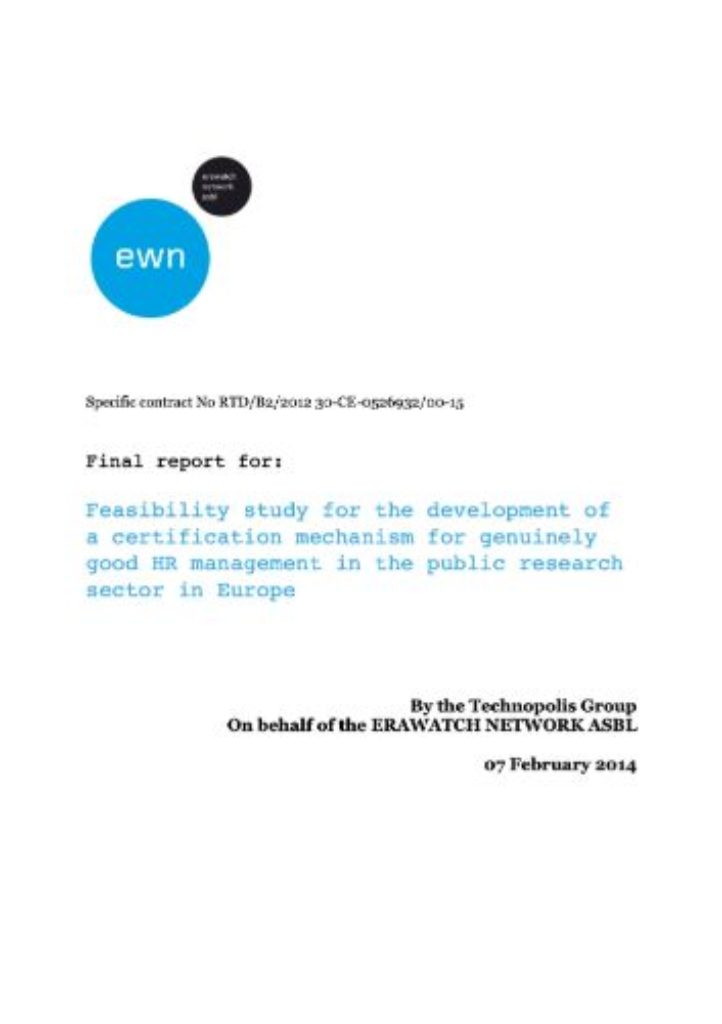Feasibility study for the development of a certification mechanism for genuinely good HR management in the public research sector in Europe
Fecha de publicación: 7 febrero 2014 | Idioma del informe EN
As part of the European Research Area (ERA) agenda, the European Commission is committed to increasing the attractiveness of research careers in Europe, and to improving employment and working conditions for researchers. It has therefore developed a number of policy initiatives over the past decade that have sought to encourage and support voluntary actions within the Member States in order to make progress in this area. The European Charter for Researchers and Code of Conduct for the Recruitment of Researchers (hereafter referred to as the ‘Charter and Code’) encompass four broad aspects of human resource management, including working conditions and professional development,as well as professional conduct and recruitment. The Charter and Code’s four first -level dimensions expand into 40 second – level dimensions, and this hierarchy and taxonomy has served as the basis for the Human Resources Strategy for Researchers (HRS4R), a pan-EU process that has been running for five years and has generated substantial political and institutional support for translating the principles set out in the Charter & Code into institutional policies and practices.
The Commission is investigating its options for setting up a transparent, internationally recognised certification mechanism for good HR management in the European Research Area, based on a set of clearly defined and broadly applicable assessment criteria that are linked to the key principles of the Charter and Code. The objective of this study was to support the Commission in this endeavour
- To develop a certification process for good HR management, based on the concept of genuinely good HR management, and including the basis for assessment, criteria, and methodologies
- To design an architecture for the certification bodies and their accreditation
- To develop scenarios for setting up the certification and accreditation mechanisms, and options for the practical implementation of the new scheme
To assess the feasibility of the initiative as a whole, taking into account existing mechanisms, legislation, and ongoing and planned initiatives at EU and national level
The study process has entailed a combination of primary and secondary data collection, but at heart it was run as a community – wide consultation to test both the level of demand for a certification system and to explore the preferred options for a future system as well as critical success factors.


